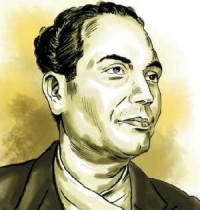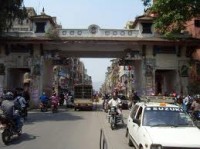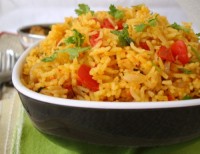Girija Prasad Koirala
Born in the year 1925, Girija Prasad Koirala is one of the most prominent and well known political leaders of Nepal. The President of the Nepali Congress, he is the first and only political leader to be the Prime Minister of Nepal four times serving from 19911 to 1994, 1998 to 1999, 2000 to 2001 and 2006 to 2008 and was also Acting head of the State from January 2007 to July 2008.
For over sixty years, he has played active role in Nepali politics and was the pioneer of the Nepalese labor movement (workers’ movement in the Jute mills of Biratnagar). He became the first democratically elected Prime Minister in 1991 and his brother B.P. Koirala and the Nepali Congress party were in power in the country’s first democratic election in 1959.
During the time when his father Krishna Prasad Koirala was living in exile in Saharsa village in Bihar of British India, Girija Prasad Koirala was born there in 1925. Hailing from the family with political backgrounds (both of his other brothers had become the Prime Ministers of the country), he got involved in politics in 1947 as the leader of the workers’ strike. He founded the Nepal Mazdoor Congress in 1948 which later changed into Nepal Trade Union Congress-Independent. He became the President of the Morang District Nepali Congress and held that office until his arrest and imprisonment by King Mahendra during the 1960 royal coup. He was exiled to India along with the leaders and workers of the party in 1967 after his release and he stayed there until his return to Nepal in 1979. He served as the General Secretary of the country from 1975 to 1991 and was actively involved in the 1990 Jana Andolan that led to the end of the Panchayat rule and introduction of multiparty politics into the country.
He was elected as a Member of Parliament from the Morang-1 and Sunsari-5 constituencies in Nepal’s first multiparty democratic election in 1991. He was elected as the leader of the Nepali Congress parliamentary party and was appointed as Prime Minister by King Birenda following the victory of the Nepali Congress over 110 of the 205 seats in the Pratinidhi Sabha (House of Representatives), the lower house of parliament. He had also played active role in ending the decade long Nepalese Civil War and brining the Maoists into the mainstream and starting the peace process in the country. For his efforts, he was also nominated by the government of Nepal for the Nobel Peace Prize.
He died on 20 March 2010 at the age of eighty five as he was suffering from asthma and pulmonary disease. His funeral that was held at Pashupatinath temple saw thousands of his followers and people of Nepal gathering to pay their homage and farewell to this prominent political leader. He was described as a ‘national guardian’ by The Hindu and many national and international political and other leaders paid respects and condolence to him. His funeral procession (that started from Dashrath Stadium to Pashupatinath temple) and the funeral rites saw thousands of people to pay their final respect to the prominent political leader of Nepal and this mass gathering at the funeral of any political leader was the largest in the history of Nepal.







